 Ganxi
Ganxi
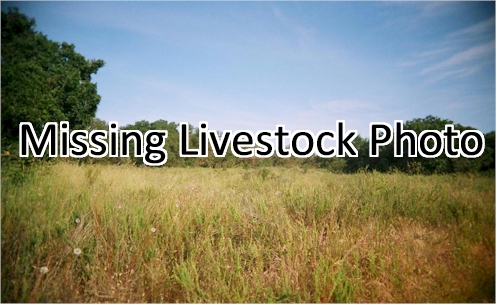 Ganxi pigs, also known as Jianxi pigs, are an indigenous breed of domestic swine originating from the Jiangxi Province in China. They are characterized by their distinctive black and white markings, compact build, and hardy temperament.
Ganxi pigs, also known as Jianxi pigs, are an indigenous breed of domestic swine originating from the Jiangxi Province in China. They are characterized by their distinctive black and white markings, compact build, and hardy temperament.
Ganxi pigs are considered medium-sized hogs, typically weighing between 180 and 230 kilograms (397 and 507 pounds) at maturity. Boars tend to be slightly larger than sows.
They have a compact and muscular build, with a slightly arched back and a deep chest. Their heads are medium in size, featuring erect ears and a slightly dished snout.
Their coats exhibit a distinctive black and white pattern, with the black patches typically covering the head, shoulders, back, and legs, ...

 Gascon
Gascon
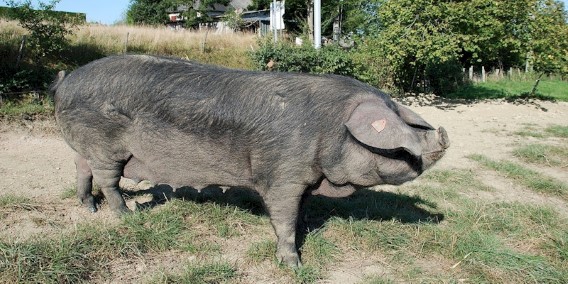 Gascon pigs are a rare breed from the
mountainous and remote regions of France, and they probably are the most ancient
breed of pig in France.
Gascon pigs are a rare breed from the
mountainous and remote regions of France, and they probably are the most ancient
breed of pig in France.Despite endangered Gascon pigs have many valuable characteristics. Like most old-fashioned breeds, they are prone to becoming very fat, but they are vigorous, hardy, thrifty and tolerant of hot climates. The sows are prolific and have a good supply of milk for their litters.

 German Landrace
German Landrace
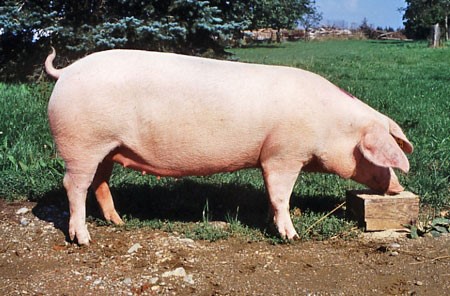 German Landrace pigs were developed around 1900,
in Lower Saxony, Germany from carefully selected pigs from the area. During the
years of 1948 to 1958, there were importations of Danish and Dutch Landrace
that were used to further improve the breed.
German Landrace pigs were developed around 1900,
in Lower Saxony, Germany from carefully selected pigs from the area. During the
years of 1948 to 1958, there were importations of Danish and Dutch Landrace
that were used to further improve the breed. German Landrace pigs are very similar to other Landrace pigs; they are white heavy drooping ears. However, they are not as extreme in size and length as some of the Landrace strains of other nations.
German Landrace pig breeding selection efforts have been especially directed toward excellent fertility, heavy milking, and good mothering. There has been special attention, following weaning, to efficiency in feed conversion and to high cut-out values.
Ger ...

 German Saddleback
German Saddleback
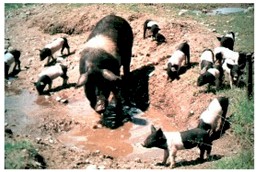 German Saddleback pigs, also known as "Deutsche Sattelschweine" or "Saddleback pigs" in Germany, are a rare breed of domestic swine originating from the Franconia region of Germany. They are characterized by their distinctive black and white saddle-like markings, compact build, and gentle temperament.
German Saddleback pigs, also known as "Deutsche Sattelschweine" or "Saddleback pigs" in Germany, are a rare breed of domestic swine originating from the Franconia region of Germany. They are characterized by their distinctive black and white saddle-like markings, compact build, and gentle temperament.
Size German Saddleback pigs are classified as medium-sized hogs, typically weighing between 200 and 250 kilograms (441 and 551 pounds) at maturity.
Build They have a compact and muscular build, with a slightly arched back and a deep chest. Their heads are medium in size, featuring erect ears and a slightly dished snout.
Coloration Their coats exhibit a distinctive black and white saddle-lik ...

 Gloucestershire Old Spot
Gloucestershire Old Spot
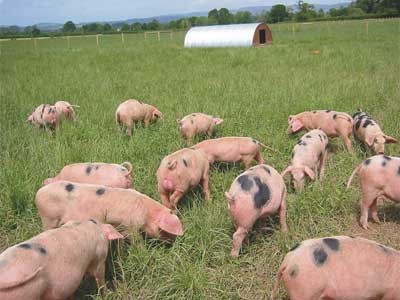 The Gloucestershire Old Spot pig, also affectionately known as the "Old Spots" or "Gloucester Old Spots," boasts a rich heritage rooted in the picturesque countryside of Gloucestershire, England. Renowned for their distinctive appearance and esteemed culinary qualities, these pigs have garnered acclaim both domestically and abroad.
The Gloucestershire Old Spot pig, also affectionately known as the "Old Spots" or "Gloucester Old Spots," boasts a rich heritage rooted in the picturesque countryside of Gloucestershire, England. Renowned for their distinctive appearance and esteemed culinary qualities, these pigs have garnered acclaim both domestically and abroad.
With their endearing white coats adorned with large, distinctive black spots, Gloucestershire Old Spot pigs cut a striking figure in pastoral landscapes. Their iconic appearance is complemented by a gentle disposition and a penchant for ambling through sun-dappled orchards and rolling meadows.
Bearing testament to their centuries-old lineage, Gloucestershire Old Spot pigs have long been priz ...

 Gloucestershire Old Spots
Gloucestershire Old Spots
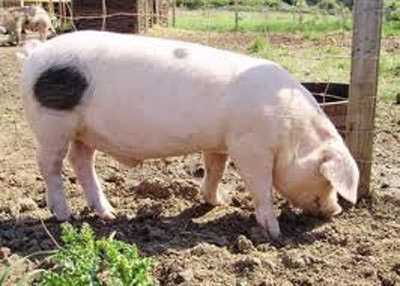 In the verdant landscapes of Gloucestershire County, England, roam the iconic Gloucestershire Old Spots Pigs, affectionately known as GOS hogs. Revered for their gentle demeanor, keen intellect, and remarkable fertility, these hogs epitomize the epitome of pastoral elegance and agricultural prowess.
In the verdant landscapes of Gloucestershire County, England, roam the iconic Gloucestershire Old Spots Pigs, affectionately known as GOS hogs. Revered for their gentle demeanor, keen intellect, and remarkable fertility, these hogs epitomize the epitome of pastoral elegance and agricultural prowess.
With boars boasting a mature weight of 600 lbs (272 kg) and sows reaching 500 lbs (227 kg), Gloucestershire Old Spots Pigs command attention with their substantial stature and robust physique. Predominantly adorned in a pristine white coat adorned with distinctive black spots, these pigs exude an air of timeless elegance and rustic charm that captivates onlookers.
Integral to their heritage is the requirement of at least on ...

 Glowing Taiwanese
Glowing Taiwanese
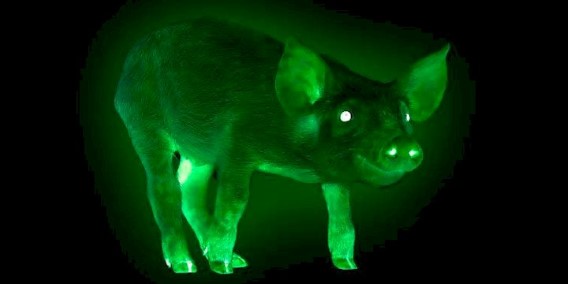 In Taiwan, they developed green luminous piglets. The goal of
their fluorescent cells is to help facilitate the work of geneticists.
In Taiwan, they developed green luminous piglets. The goal of
their fluorescent cells is to help facilitate the work of geneticists.Three green glowing male piglets were born thanks to the efforts of scientists from the National Taiwan University. Professor Shin-Zhi expressed the hope that their appearance will help in further research of stem cells research.
Embryos with fluorescent green Jellyfish protein was introduced into eight sows, but only four of them became pregnant, and only three pregnancies ended with successful delivery.
The piglets have a greenish tinge even in ordinary daylight, and in the ultraviolet rays they look quite bright green.
According to Shin-Zhi, this new ...

 Gochu Astrucelta
Gochu Astrucelta
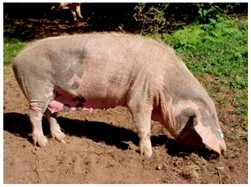 Gochu Astrucelta pigs, also known as Asturian Celta Pig or Celta Pig in Spanish, are an indigenous breed of domestic swine originating from the Asturias region of northwestern Spain. They are characterized by their distinctive black coloration, compact build, and rustic temperament.
Gochu Astrucelta pigs, also known as Asturian Celta Pig or Celta Pig in Spanish, are an indigenous breed of domestic swine originating from the Asturias region of northwestern Spain. They are characterized by their distinctive black coloration, compact build, and rustic temperament.
Size: Gochu Astrucelta pigs are considered medium-sized hogs, typically weighing between 200 and 250 kilograms (441 and 551 pounds) at maturity.
Build: They have a compact and muscular build, with a slightly arched back and a deep chest. Their heads are medium in size, featuring erect ears and a slightly dished snout.
Coloration: Their coats exhibit a solid black coloration, ranging from deep black to slightly grayish-black. Th ...

 Gottingen Minipig
Gottingen Minipig
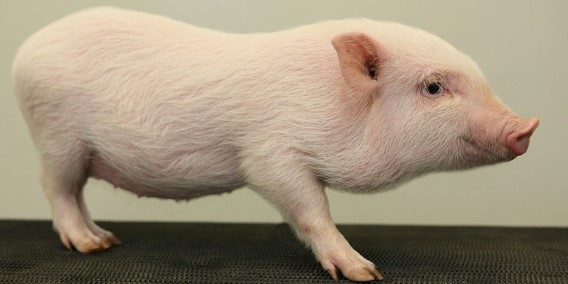 Gottingen Minipig (also known as the Gottinger or Goettingen Minipig) are a breed of miniature swine developed specifically for use in biomedical research. They arernbest known for their exceptionally small size and their very clean andrnwell-characterized health status. Their development began in the late 1960s atrnthe Institute of Animal Breeding and Genetics at the University of Gottingen, Germany, by crossbreeding Minnesota minipigs, the Vietnamese Potbelly Pigs, and German Landrace pigs. Today they are is bred at four separate locations globally and are used in life-saving biomedical research all over the world.
Gottingen Minipig (also known as the Gottinger or Goettingen Minipig) are a breed of miniature swine developed specifically for use in biomedical research. They arernbest known for their exceptionally small size and their very clean andrnwell-characterized health status. Their development began in the late 1960s atrnthe Institute of Animal Breeding and Genetics at the University of Gottingen, Germany, by crossbreeding Minnesota minipigs, the Vietnamese Potbelly Pigs, and German Landrace pigs. Today they are is bred at four separate locations globally and are used in life-saving biomedical research all over the world.

 Grafschaft Bentheim
Grafschaft Bentheim
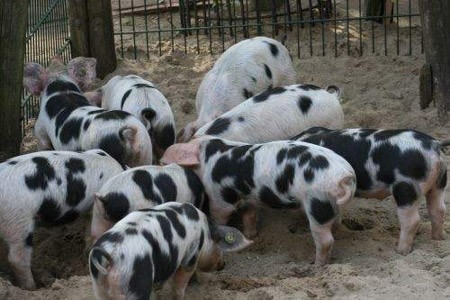 Originating in the Grafschaft
Bentheim area of northern Germany, the Bentheim Black Pied Pig is also known as
the Bunts Bentheimer Schwein, which is a mid-sized breed that is lop-eared with
white with black spots with grey rings. Their best traits are that they are
hardy and long-lived, with high fertility rates. They have an average of 9.2
pigs per litter. Boars average 75 cm height and 250 kg weight and sows average
70 cm height, 180 kg weight.
Originating in the Grafschaft
Bentheim area of northern Germany, the Bentheim Black Pied Pig is also known as
the Bunts Bentheimer Schwein, which is a mid-sized breed that is lop-eared with
white with black spots with grey rings. Their best traits are that they are
hardy and long-lived, with high fertility rates. They have an average of 9.2
pigs per litter. Boars average 75 cm height and 250 kg weight and sows average
70 cm height, 180 kg weight.In Bentheim Germany, in the beginning of the 20th century, the pig breeds consisted of a large number of colored swine. That are crosses of Berkshire and Cornwall breeds. The Bentheim became nearly extinct in the 1950s and is now considered a rare breed with only 100 registered ...

 Grice
Grice
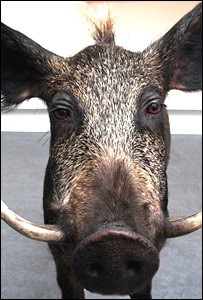 Grice Pigs, also known as the Highland,
Hebridean or Irish pig, are an extinct pig from Scotland and Ireland. They
became extinct, surviving longest in the Shetland Isles, where they disappeared
in the late nineteenth century.
Grice Pigs, also known as the Highland,
Hebridean or Irish pig, are an extinct pig from Scotland and Ireland. They
became extinct, surviving longest in the Shetland Isles, where they disappeared
in the late nineteenth century.Accounts from the early 19th century suggest the grice was an aggressive animal with small tusks, an arched back, and a coat of stiff dark bristles over a fleece of wool. Most likely ranchers stopped breeding them and turned to more docile pigs.

 Guinea Hogs
Guinea Hogs
 Guinea Hogs, also known as Pineywoods Guinea, Guinea
Forest Hog, Acorn Eater, and Yard Pigs, are unique to the United States.
Despite their name, Guinea Hogs are not from the country of Guinea. The Guinea
Hog has a black coat, sturdy body, curly tail and upright ears.
Guinea Hogs, also known as Pineywoods Guinea, Guinea
Forest Hog, Acorn Eater, and Yard Pigs, are unique to the United States.
Despite their name, Guinea Hogs are not from the country of Guinea. The Guinea
Hog has a black coat, sturdy body, curly tail and upright ears.Guinea hogs are very easy hogs to keep. They are good as free-range foragers but they are also at home in a farmyard. If farrowing is planned in the spring or summer, just a dry covered nesting place is needed. They are easy to contain with a high tensile electric fence (you will need a low wire at 6 inches, 18 inches, and 30 inches). They are even handy to have around because they eat snakes.
If they are habituated to people as piglets, they become d ...

 Guizhong Spotted
Guizhong Spotted
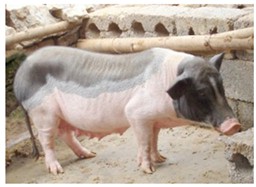 Guizhong spotted pigs, also known as Guizhou spotted pigs, are an indigenous breed of domestic swine originating from the Guizhou Province in China. They are characterized by their distinctive spotted coloration, compact build, and hardy temperament.
Guizhong spotted pigs, also known as Guizhou spotted pigs, are an indigenous breed of domestic swine originating from the Guizhou Province in China. They are characterized by their distinctive spotted coloration, compact build, and hardy temperament.
Guizhong spotted pigs are considered medium-sized hogs, typically weighing between 180 and 250 kilograms (397 and 551 pounds) at maturity. Boars tend to be slightly larger than sows.
They have a compact and muscular build, with a slightly arched back and a deep chest. Their heads are medium in size, featuring erect ears and a slightly dished snout.
Their coats exhibit a distinctive spotted pattern, with black spots of varying sizes scattered across a white ...
